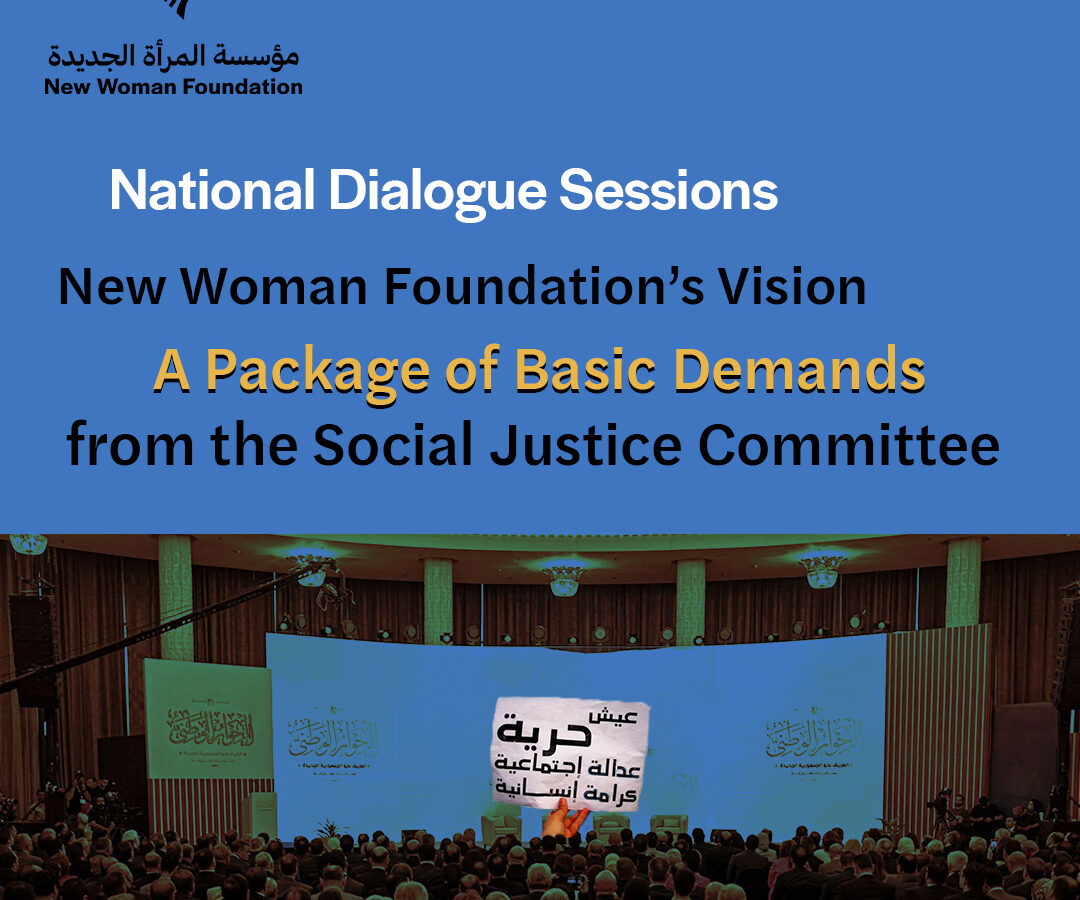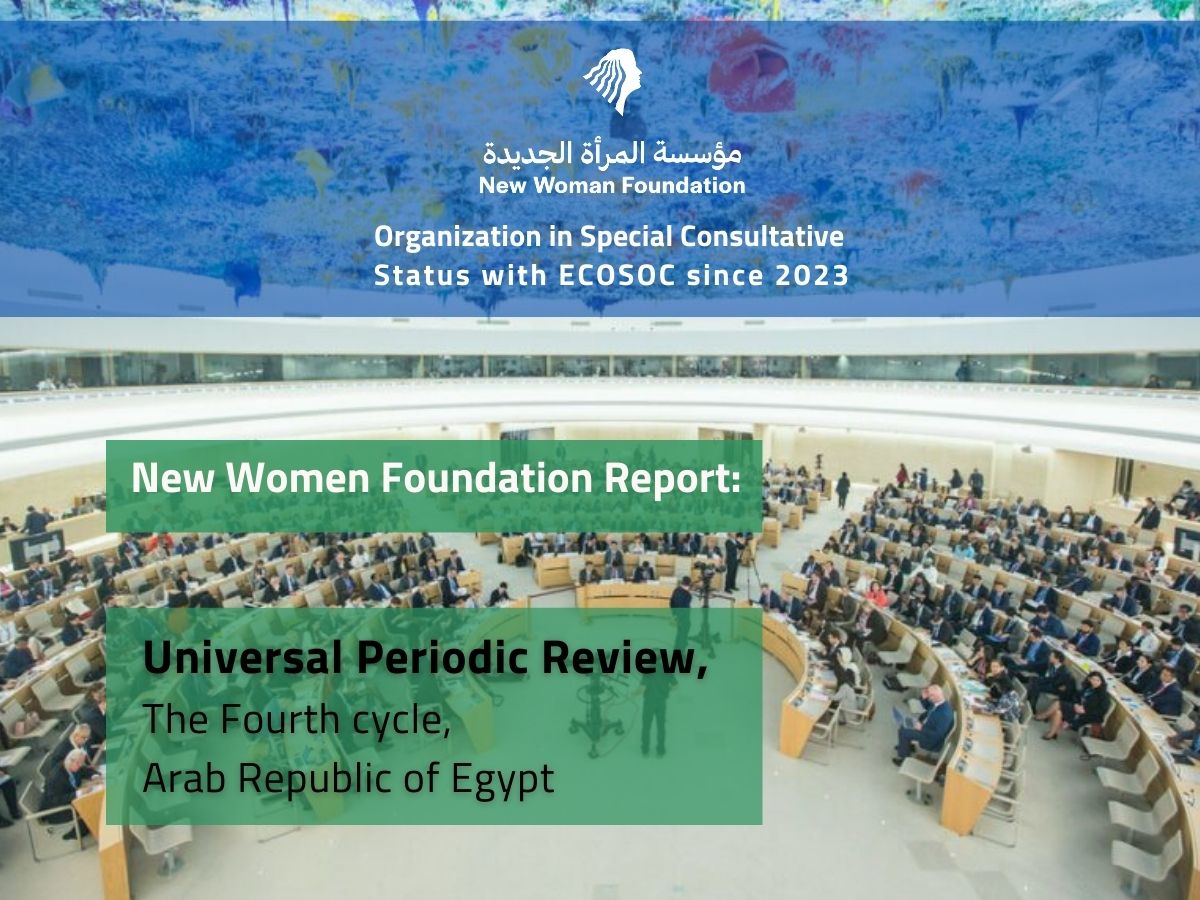- Contact Us
- 0020233382706
- nwrc@nwrcegypt.org
National Dialogue Sessions The vision of New Woman Foundation from the Social Justice Committee

Statement by the Anti-FGM Task Force in Egypt
February 9, 2023
National Dialogue Sessions New Woman Foundation’s Vision about Women’s Right to Guardianship
May 31, 2023The sessions of the eight National Dialogue Committees have started last week, the most important of which is the Social Justice Committee, which will discuss issues that are in touch with the daily reality of life and that concern all male and female citizens, namely:
– Discussing the programs of social protection and the status quo.
– Discussing work policies.
– Discussing policies of wages and pensions.
-Discussing tax policies.
– Discussing policies of social housing and slums development.
An important part of these axes is included in Egypt’s Vision 2030 on sustainable development, in which the first three axes clearly focus on issues of social justice.
– Quality of life: Improving the quality of life of the Egyptian citizens and improving their standard of living.
– Justice and Inclusion: Justice, social inclusion and participation.
-Achieving economic growth and increasing employment rates and decent job opportunities.
This is in addition to the four main axes of the Women’s Empowerment Strategy 2030, which are political, economic and social empowerment, and protection from violence.
Human development reports often indicate high rates of feminization of poverty, an increase in the gender gap in access to resources, and in light of the unexpectedly high rates of inflation, it becomes necessary for the outputs of the national dialogue in this committee to emphasize gender equality in access to opportunities (work, education, health care, credit, housing, etc.), and fair distribution of resources to enable all members of society – regardless of gender, race, religion, or economic level – to enjoy a decent life and fair access for male and female citizens to services and investments in the care infrastructure , in order to build strong social protection systems that include comprehensive health care, protection from violence, and fair and equitable access to resources in a human rights and sustainable context and within a democratic development economic model.
In this context, we considered it necessary to incorporate a package of basic demands from the Social Justice Committee, the most important of which are:
– Addressing the gender gap in regard to wages and activating mechanisms to protect against discrimination by establishing the Discrimination Commission as stipulated in the constitution.
– Amending the labor law to include all categories without exception, especially for male and female workers in the informal sector, including the development of social protection systems.
– Ratification of Convention 190 against violence in the workplace to provide decent work opportunities for all.
– Provide sexual and reproductive health services at an affordable cost for women.
– Address discriminatory stereotypes, social norms and structural barriers to encourage women and girls to enter all fields of study and career paths that are traditionally male-dominated.
– Amendment and development of the legislative context for the solidarity economy and the establishment of cooperatives to allow facilitating their work, and unifying the competent authorities concerned to allow their independence and freedom of work, especially to promote the values of collective and cooperative work, especially in the agricultural sector in which women occupy 36% to achieve and meet their economic, social and cultural needs in a project in which there is collective internal control over its funds and is based primarily on the fair distribution of resources.




